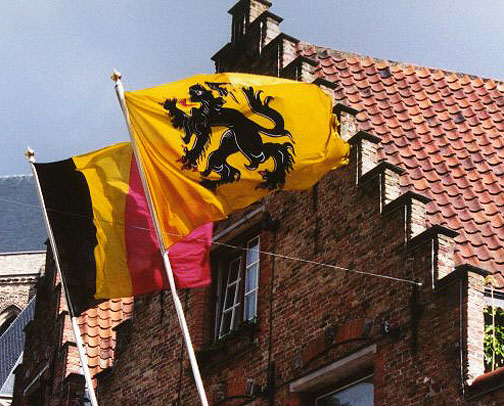 There is a scene in the excellent Australian film “Beneath Hill 60” where two German soldiers are talking about the consequences after they have realised the enemy is about to blow their position sky high.
There is a scene in the excellent Australian film “Beneath Hill 60” where two German soldiers are talking about the consequences after they have realised the enemy is about to blow their position sky high.“Why don’t we just move back,” said one, reasonably. “After all Europe is a big place, one hill is not going to make any difference.”
The other is mortally offended.
“Our High Command would never consider it. The place is filled with German blood. You simply don’t understand war,” he concluded imperiously.
Understanding war is indeed a difficult task, particularly something as nasty, brutish and long as the First World War. The anonymous and unimpressive Hill 60 (deserving only of a number) was a particularly senseless battlefield in an extremely senseless war. The hill changed hands several times both before and after the events depicted in the film. The objective became meaningless over time and took millions of lives in the process. In some ways WW1 was the ultimate salute to the absurdity of modernism.
Tho events beneath Hill 60 are a little known adjunct to the 1917 Battle of Messines near Ypres in Flanders, Belgium. Based on the diaries of Captain Oliver Woodward, David Roach’s screenplay tells the stories of the 1st Australian Tunnelling Company a group of miners and engineers cobbled together for the task of digging passages under enemy lines. Woodward was a Queensland miner brought in specially for the task. The plan at Messines was to lay 21 mines with almost 500 tonnes of ammonal explosives underneath German lines deep in the blue clay 25 metres below the soggy upper-level soil.
The plan was the brainchild of Viscount and Field Marshal Herbert Charles Onslow Plumer. Despite the toffish name and the Blimp-like reputation of many fellow World War I generals, Plumer was one of the finest army commanders on the Western Front. It helped he had an infantry background not cavalry and was not addicted to the grand but futile charges so beloved of many of his peers.
The idea for tunnels (attachment is a rich text file) came from the Germans. When the trench warfare was deadlocked in 1915 German Engineers realised the possibilities of literally undermining British morale by building a system of tunnels under their lines and detonating large charges of explosives. The British retaliated and began a rapid recruitment program of English and Welsh miners. The Government and mine owners objected and the net was cast further wide to Canada and Australia.
For almost 12 months ahead of the Messines battle, Plumer organised the digging of the mines which would be detonated prior to a ground assault. The evening before the attack, he told his staff, "Gentlemen, we may not make history tomorrow, but we shall certainly change the geography.”
19 of the 21 mines laid exploded and according to the British newspapers, Londoners were startled out of their sleep at 3.10am by the sound of the huge explosion. German positions were shattered and their menacing high ground defence disappeared in an instance. The British advanced a few miles but the poor condition of the shell-torn terrain prevented them from following up the advantage.
In the end Hill 60 was just another death-ridden postscript to a vengeful war of attrition that destroyed a generation of young men across the "big place" of Europe and its imperial outposts. As ominously foreshadowed by the equally vicious American Civil War 50 years earlier, here were industrialised nations fighting with technologically advanced, mass-produced weapons which enabled killing and wounding on an unprecedented scale. 20 million people died and 20 million more were injured. The callous lack of regard for life it showed up led to the real war to end all wars 20 years later.
Jeremy Sims’ film Beneath Hill 60 gives us a window into that world. It is a below-basement level window and the claustrophobia of the Australian tunnellers it depicts is deftly handled. Though set in the months leading to June 1917, the weather is invariably cruel, wet and miserable. It is truly T.S. Eliot’s The Waste Land
April is the cruellest month, breeding
Lilacs out of the dead land, mixing
Memory and desire, stirring
Dull roots with spring rain.
Sims takes us under the dull roots of the waste land to confront a human-engineered hell. The story contrasts springtime fertility with the black and muddy stench of death. The Australian flashback scenes invert the seasons as well as tone of the film. But as the only Australian scene in the film that is not a flashback shows, there is little chance for redemption for those who have visited the circles of hell under Hill 60; the best anyone can hope for is a painful and memory-scarred survival.
No wonder so many survivors don’t like talking of their war experiences. War is the very antithesis of life. That's why so few people understand it.


